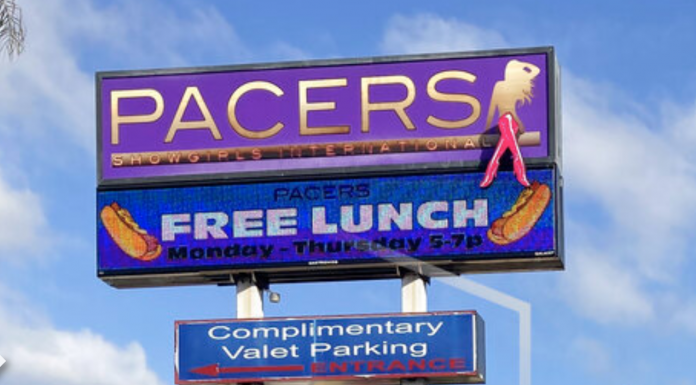Judge says strip club ruling also protects restaurants
SAN DIEGO (AP) — A California judge said Thursday that all restaurants in San Diego County can resume on-site dining with safety protocols, marking a major setback to the governor’s stay-at-home order to slow the spread of the coronavirus.
San Diego Superior Court Judge Joel Wohlfeil said the ruling he issued Wednesday that protected two strip clubs from being forced to stop indoor activity also extended to the thousands of eateries in the county of 3 million people.
Hours after the ruling, San Diego County suspended enforcement of its restrictions barring indoor and outdoor dining and live entertainment. Officials then requested the hearing to get clarification from the judge about the scope of his ruling.
Wohlfeil said Thursday that his order was “straightforward” and goes beyond the two strip clubs, Cheetahs Gentlemen’s Club and Pacers Showgirls International, that sued the county over an order in October to shut down.
“It is intended to encompass all restaurants within the county of San Diego,” he said in a brief hearing.
The judge’s ruling against the state restrictions comes as California registered a record 379 coronavirus deaths and more than 52,000 new confirmed cases Thursday.
Citing the “record number of new infections, deaths and ICUs at capacity,” county officials, nonetheless, urged people not to gather and to socially distance, wear face coverings and wash their hands.
Wohlfeil said in his ruling that it applies to “San Diego County businesses with restaurant services,” including the strip clubs. The injunction exempts them from shutdowns and “any related orders” that bar live adult entertainment and go beyond protocols “that are no greater than essential” to controlling the spread of COVID-19.
The judge noted that before being ordered to close in October the clubs, Pacers Showgirls International and Cheetahs Gentlemen’s Club, operated for five weeks during the pandemic under their own safety measures — including keeping strippers 15 feet (4.6 meters) from tables, allowing no more than one stripper per stage and requiring them and other employees to wear masks.
County supervisors had vowed to appeal if the judge extended his temporary Nov. 6 injunction exempting strip clubs.
Gov. Gavin Newsom’s office said in a statement that it was disappointed in the court’s decision, though “we remain steadfast in our commitment to protecting the health and safety of all Californians.”
Three restaurant owners, including one who owns several establishments in San Diego, said they were planning to reopen by the weekend. They did not want to be named for fear of being targeted by officials.
Angie Weber, the owner of Cowboy Star and and Butcher Shop in downtown San Diego, said she was waiting to see if officials appeal before calling her staff to return to work.
“For now we are very hopeful that the ruling will be upheld and we’ll be able to reopen with all of the safety protocols that we had previously put in place,” Weber said in an email Thursday.
Weber’s business was among two San Diego restaurants and two gyms that sued on behalf of their industries, asking that California’s four-tier system of pandemic restrictions be declared illegal. The judge in that case denied their request to resume indoor activity.
In a similar lawsuit in Los Angeles County, a judge found the health director acted “arbitrarily” and didn’t prove that health benefits outweigh the negative economic effects before issuing a ban on indoor and outdoor dining. But then the state issued its order restricting restaurants to takeout and delivery services.
Steve Hoffman, an attorney for Cheetahs, said he was “very pleased” with Wednesday’s ruling.
“Cheetahs and Pacers will continue to operate in a manner that takes all appropriate and essential measures to prevent the spread of COVID-19 while at the same time providing a means for their staff to earn a livelihood,” he wrote in an email.
The ruling came after Newsom’s Dec. 3 stay-at-home order barred indoor and outdoor dining and prohibited social gatherings in response to a surge of coronavirus cases that has hammered hospitals across the state.
The judge’s ruling followed a spirited argument about whether the shutdown violates the 1st Amendment, which protects naked dancing as free expression.
“What’s going to happen next when there is some greater emergency? Are we all going to be under house arrest? Are we going to even have a Constitution?” said lawyer Jason Saccuzzo, who represents Pacers.
Patty Li, an attorney for the state, highlighted the extreme scarcity of intensive-care unit beds and growing waits in hospital emergency rooms to justify what she emphasized were temporary measures.
“It really is about the entire community, the entire state,” Li said. “This is the most serious moment of this pandemic in the state, in the nation so far.”
___
Associated Press writer John Antczak contributed to this report from Los Angeles.



